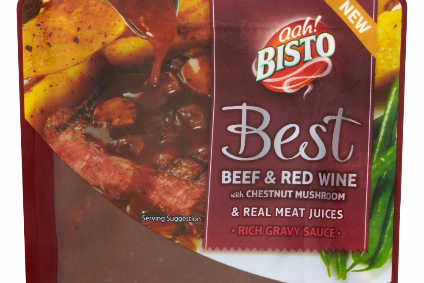
The London-listed business, home to Mr Kipling cakes and Ambrosia custard, is open to deals for brands that could take the company into a new category in the UK or help quicken its growth in international markets, CEO Alex Whitehouse said.
“Now, with our leverage down below two times, it allows us to shift our emphasis on to what I call ‘phase two’ of our business strategy, which is about applying the same principles, that brand-building strategy that delivers sustainable and profitable revenue growth, to expand the business,” Whitehouse told analysts after reporting Premier’s annual financial results. “We’re going to be looking to expand into new categories in the UK and also using those same principles to expand our businesses overseas and scale those up to be critical mass.”

Discover B2B Marketing That Performs
Combine business intelligence and editorial excellence to reach engaged professionals across 36 leading media platforms.
Once labelled by some in the UK investment community as a ‘zombie’ company weighed down by debt and unable to invest in its brands, Premier’s net debt-to-EBITDA ratio stood at 1.9 times in the year to 3 April, which the business said was its “lowest-ever leverage”. The Bisto gravy maker has a “medium-term” target to reduce the ratio further to 1.5 times.
During the 53-week financial year, Premier generated revenue of GBP947m (US$1.34bn), which on a 52-week comparison, equated to a 10.3% increase to GBP934.2m.
On a statutory basis, Premier’s operating profit was up 60.1% at GBP152.6m, helped by the extra week and by proceeds from the sale of the company’s stake in UK bread business Hovis but also higher revenues. Profit for the period attributable to owners of the parent was GBP106m, against GBP46.5m in the previous, 52-week year.
“I think we’re in a really strong position, a stronger financial condition, than at any time over the last ten years and we’re all very, very optimistic and excited about the growth opportunities we’ve got in the future,” Whitehouse said.

US Tariffs are shifting - will you react or anticipate?
Don’t let policy changes catch you off guard. Stay proactive with real-time data and expert analysis.
By GlobalData“We don’t have any specific targets in mind at this stage from a bolt-on acquisition point of view but we see our core strength in building brands and deriving growth from brands, so, clearly, it will make sense for any acquisition that we look at to pass the test of a brand or a branded business because that’s where our core focus is and our skillset and one where we think we can add value. Other than that, I think it’s too early to say. We’re currently in the early stages of exploration, I think is probably the best way to describe that.”





